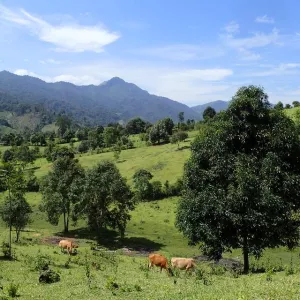Tackling food system challenges through silvopasture: insights from an expert workshop
With 15 percent of greenhouse gas emissions planet-wide, the livestock sector is at the center of conversations around sustainability of food production. Yet, discussions are often polarized and lack nuance. Contrary to general understanding, examples exist of diverse livestock systems with low environmental footprint, resilience to climate change, and capacity to respond to market demand, while meeting nutritional requirements and

Tackling food system challenges through silvopasture: insights from an expert workshop
With 15 percent of greenhouse gas emissions planet-wide, the livestock sector is at the center of conversations around sustainability of food production. Yet, discussions are often polarized and lack nuance. Contrary to general understanding, examples exist of diverse livestock systems with low environmental footprint, resilience to climate change, and capacity to respond to market demand, while meeting nutritional requirements and livelihood needs of smallholder farmers.
Silvopastoral systems, which combine livestock with trees or other woody perennials and forages, emerge as a promising alternative to tackle environmental problems of livestock production. The structural and functional integration of system components allows for positive biophysical interactions, which then give rise to benefits in terms of productivity, diversification, animal wellbeing and a range of other ecosystem services. Also, their carbon sequestration potential can be significant. Silvopasture is already widely practiced in many countries in Latin America and the Caribbean, USA and Europe – but little is known about its application in other regions in the Global South, which face unique socio-economic and environmental challenges with high human population density, persistent poverty and hunger, and increasingly adverse weather.
To bring together the latest knowledge about success factors of silvopastoral systems and their potential to deliver diverse benefits in smallholder communities in Asia and Africa, a silvopasture research workshop was organized at the Headquarters of the Alliance of Bioversity International and CIAT in Rome, Italy, from 5 to 7 December 2023. The event brought together 30 researchers from 12 countries, including 10 online participants.

